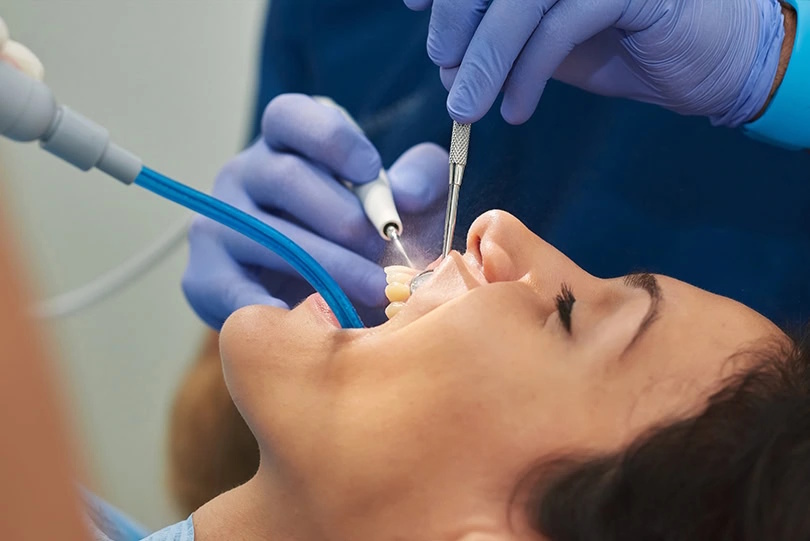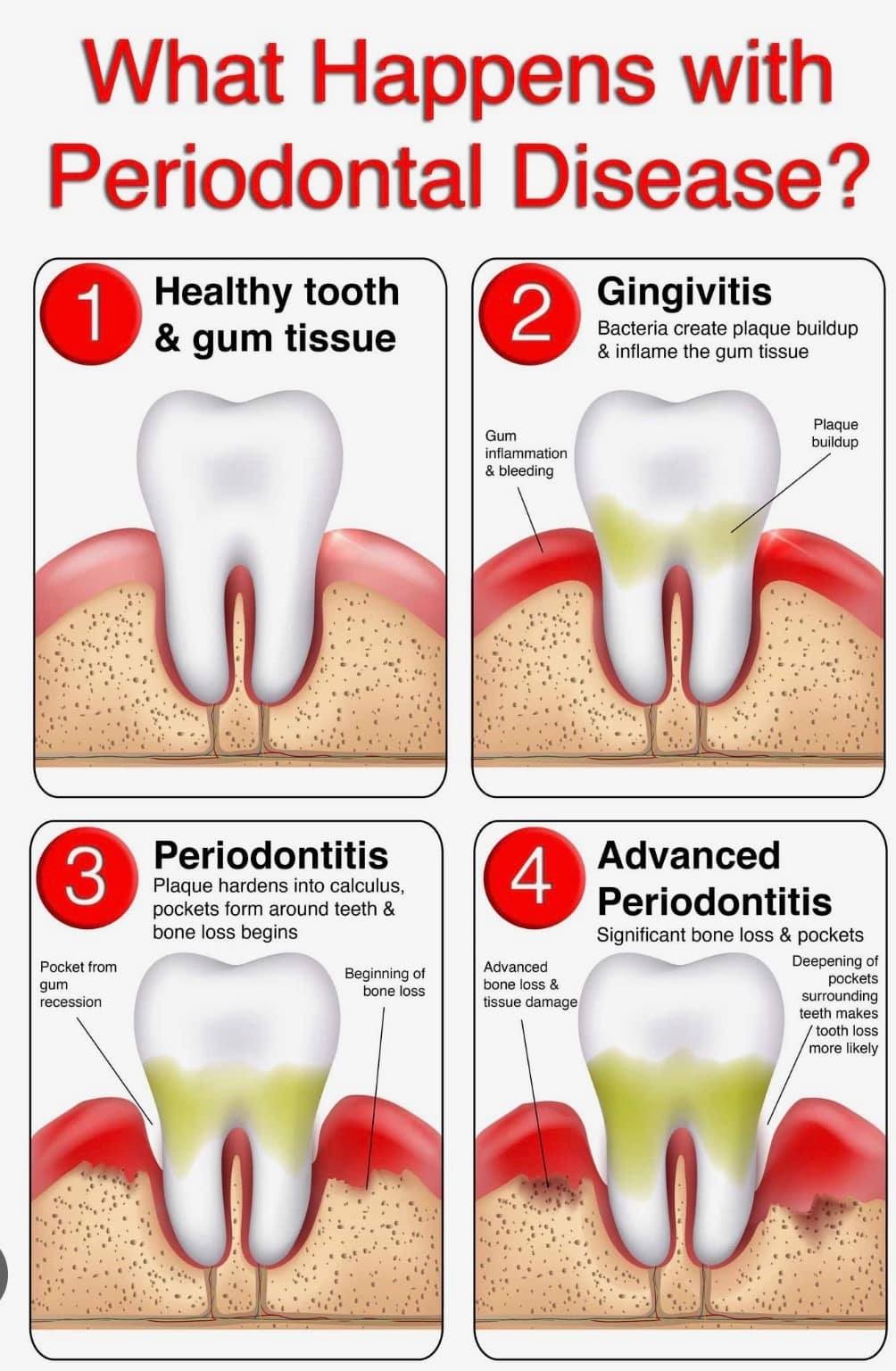Have You Ever Wondered Why Your Gums are Swollen or Bleeding?

What is periodontal disease?
Periodontal disease is the result of infection and inflammation of the gums and bone that support our teeth. Every time we eat, plaque, a sticky coating containing bacteria, builds up around our teeth. Our immune system tries to get rid of plaque with an immune response, and this causes redness and swelling of our gums.
In the early stage, periodontal disease is called gingivitis. The gums become swollen and red, and they may bleed when we brush. In the later stages, called periodontitis, gums are pulled away from the teeth, deep pockets (gaps between gums and teeth) are formed, bone is lost, and teeth may become loose and even fall out.
Periodontal disease increases with age and is common in the U.S. population. According to a recent CDC report, 70.1% of adults 65 and older have periodontal disease.

What are the warning signs?
Periodontal disease is often silent, so symptoms may not appear until it reaches the advanced stage. However, warning signs can include the following:
- Bad breath
- Red, swollen and tender gums
- Bleeding when brushing, flossing or eating
- Gums that are receding or pulling away from the teeth, causing our teeth to look longer than before
- Loose or separating teeth
- Sensitive teeth
- Pus between the gums and the teeth
- Changes in the way your teeth fit together when you bite
Who is more susceptible to periodontal disease?
Certain factors/medical conditions can make us more at risk for periodontal disease. Individuals in the following list can be more prone to this condition:
- Smokers
- Diabetics
- Have poor oral hygiene
- Do not have regular dental cleanings
- Undergo a substantial amount of stress
- Have parents or siblings that suffer from periodontal disease (hereditary)
- Have underlying immunodeficiencies such as AIDS
- Take medications that cause dry mouth
- Females with hormonal changes such as during pregnancies or use of oral contraceptives
- Have crowded teeth
- Have defective fillings or bridges
How can we prevent periodontal disease?
It is crucial for us to be aware that damages caused to our gums and bone are irreversible once the disease reaches the stage of periodontitis. It is, therefore, important to control the infection and inflammation of our gums when it is still in the early stage (gingivitis).
To help prevent or control periodontal disease, remember to:
- Brush your teeth and along the gum line at least twice per day, especially before going to bed at night
- Use a toothbrush with a small brush head and soft bristles
- Floss your teeth at least once daily (flossing is the only way you can clean between your teeth effectively; brushing does not replace flossing)
- Visit a dentist for a checkup and a cleaning every six months (or more frequently if you have the above warning signs or risk factors)
Ready for your first appointment?
Has it been a while since your last visit? Bring back the sparkle to your smile. Make an appointment to visit us!
